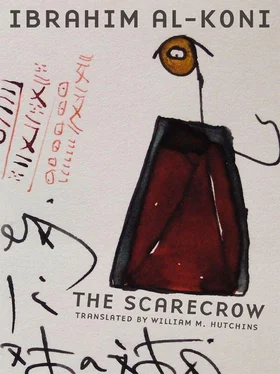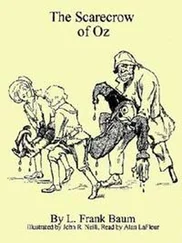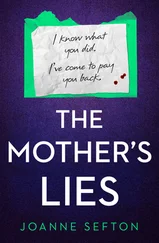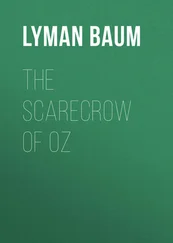He gazed up again at the horizons, which were partially obscured by the circular wall of the oasis. Then he spotted dust rising in all directions. A bloody circle of red dust particles from the Red Hammada was swirling into the empty air like a whirlwind. Had the attack begun? Had the whirlwind’s hour arrived?
He knelt on the dirt and rested his ear on the ground. Then he heard the convulsion even more clearly. Countless nations were advancing. Countless feet were marching his way. The Day of Reckoning had arrived. The armies would storm the walls before evening fell.
He decided he had to act quickly.
He traversed the empty alleys at a brisk pace almost like a canter. He lurched forward till he had left all the buildings behind. Before reaching the fields, he remembered the treasures. He recalled his plan for dealing with the treasures and smiled maliciously. He smirked smugly at the strategy he had devised to conceal the treasures. He smiled because he was sure the invaders would not discover even one of the gold or silver coins. He smiled because he was certain that he had ruined the chances to plunder for armies that had not embarked on this raid and endured the campaign’s terrors for any reason except a lust for swag. Yesterday he had spoiled their opportunity to seize the women. Today he had deprived them of the opportunity to lay hold of the treasures. So just when they thought themselves the victors, they would taste defeat, because a warrior who returns from a campaign without any booty is a defeated soldier, even if he has won the battle. This was his present for the leader of the foreigners. This was his gift to the idol. This was the revenge he had prepared for the scarecrow, the ghoul, the dragon. Hee, hee, hee, hee….
He reached the well and waded into the brook barefoot. He trampled carpets of grass underfoot, and the world’s ills slipped from his body. His foot plunged into the mire of the field, and the antidote for all the world’s ills flowed through his being. The humid breeze, which carried the scent of mud, grasses, and a fig tree, passed over him, and the poisons of chaos were drawn from his soul. He shed his tattered garments one at a time. He pulled off his shorts and tunic. He removed even his veil and stretched out in the mire. He sank into it till he disappeared. Then he poked his nostrils above the surface to take a breath and released a deep moan like the gasp of longing that springs from the chests of ecstatic mystics. He wallowed. He wallowed in the mud to rinse away the pains of angst. He wallowed in the field’s muck to cleanse himself of the world’s muck. He rolled about in the belly of the earth to free himself from the grasp of deceit. He resumed a journey he had interrupted the day he embraced the beautiful widow and entered the fields with her. He had entered the fields with her because he was certain that once a man enters the fields, he should never leave them. He had suspected that once a man enters cultivated fields, he must become part of the fields: the shadow of a tree, the trunk of a palm, or a plant growing by the brook. He had thought that fields are man’s homeland. He had suspected that orchards are man’s destiny and his paradise on the day he returns to them, but the beautiful woman had given the lie to his preconceptions and destroyed his certainty. So he had lost his wager, because he had not understood that anyone who makes a bet with a beautiful woman is destined to lose. He had returned from his orchards that day with an unpleasant sense of failure. He had borne in his hands the shackle he had drawn from the comfort of despair, childhood, and forgetfulness. He had waded in the mires of deceit for a long time, and now his circuit was finally leading him to the shores of stillness. Here he was cheek by jowl with the orchard. His body was the mud, his blood was the brook’s water, and his hair was the grass of the field. His breath was a breeze freshened by the fragrance of flowers, grass, and damp earth.
He did not know how long this encounter lasted, but when he crept away and entered the nearby skin-clad frame to borrow the scarecrow’s body, the field had donned evening’s sash.
Hünibach, the Swiss Alps
1998 CE
Ibrahim al-Koni, who was born in 1948, is an international author with many authentic, salient identities. He is an award-winning Arabic-language novelist who has already published more than seventy volumes, a Moscow-educated visionary who sees an inevitable interface between myth and contemporary life, an environmentalist, a writer who depicts desert life with great accuracy and emotional depth, a Tuareg whose mother tongue is Tamasheq, and a resident of Switzerland from 1993 through 2012, although he currently lives in Spain. Ibrahim al-Koni, winner of the 2005 Mohamed Zafzaf Award for the Arabic Novel and the 2008 Sheikh Zayed Award for Literature, has also received a Libyan state prize for literature and art, prizes in Switzerland, including the literary prize of the Canton of Bern, and a prize from the Franco-Arab Friendship Committee in 2002 for L’Oasis cachée . In 2010, he was awarded the Egyptian State Prize for the Arabic Novel. And in 2015 he was named as one of the ten finalists for the Man Booker International Prize for his body of work.
Al-Koni spent his childhood in the Sahara desert. Then, after working for the Libyan newspapers Fazzan and al-Thawra , he studied comparative literature at the Maxim Gorky Literature Institute in Moscow, where he later worked as a journalist. He lived in Warsaw for nine years and edited the Polish-language periodical as-Sadaqa , which published translations of short stories from Arabic, including some of his own. His novels The Bleeding of the Stone, Gold Dust, Anubis, The Seven Veils of Seth, New Waw , and The Puppet have been published in English translation, and The Fetishists is highly anticipated. At least seven of his titles have appeared in French, and at least ten exist in German translation. Representative works by al-Koni are available in approximately thirty-five languages, including Japanese.
A rare talk by Ibrahim al-Koni (in Arabic with English subtitles) appears at http://channel.louisiana.dk/video/ibrahim-al-koni-desert-we-visit-death, and also on YouTube.












